- عنوان کتاب: Fission and Fusion of Allies -The ROK Nuclear Quest and U.S.–France Competition and Cooperation
- نویسنده: Lyong Choi, Jooyoung Lee
- حوزه: هستهای
- سال انتشار: 2023
- تعداد صفحه: 115
- زبان اصلی: انگلیسی
- نوع فایل: pdf
- حجم فایل: 1.81 مگابایت
پروفسور لیونگ چوی این پروژه را به عنوان موردی از گسترش سلاحهای هستهای، یکی از مهمترین مسائل در امنیت بینالمللی، و تلاشهای بینالمللی برای جلوگیری از آن آغاز کرد. اکثر مشتاقان سلاحهای هستهای، جاهطلبیهای خود را با کشور(های) شریک خود که دارای فناوریهای پیشرفته هستهای بودند، توسعه دادند. برخی از این مشتاقان پس از پایان همکاری، در برنامه سلاحهای هستهای خود موفق شدند. این کشورها اغلب با فشار و بررسی از سوی سایر کشورها و/یا رژیمهای عدم گسترش مواجه میشدند که در بیشتر موارد، مانع از گسترش سلاحهای هستهای میشد. اگرچه ایالات متحده یکی از بازیگران اصلی در تلاشهای عدم گسترش سلاحهای هستهای بوده است، اما گاهی اوقات در جلوگیری از گسترش سلاحهای هستهای شکست خورده است. بسیاری از کتابها به موارد شکست آن میپردازند و ما میتوانیم از شکستهای تلاشهای عدم گسترش واشنگتن درس بگیریم. با این حال، پروفسور چوی همچنین درک چگونگی و چرایی تحقق تلاشهای ایالات متحده برای عدم گسترش سلاحهای هستهای را در بیشتر موارد معنادار دانست. بنابراین، او بر یکی از موفقترین موارد تلاش ایالات متحده برای عدم گسترش سلاحهای هستهای تمرکز میکند: مورد کره جنوبی (از این پس ROK، جمهوری کره). پروفسور چوی ضمن بررسی قرارداد تأسیسات بازفرآوری کره جنوبی و فرانسه و اختلافات ایالات متحده و کره جنوبی پیرامون تلاشهای کره جنوبی برای توسعه سلاحهای هستهای، احساس نیاز به گسترش دیدگاه خود به روابط ایالات متحده و فرانسه را داشت. بنابراین، در مقطعی از بهار ۲۰۱۸، او به پروفسور جوی-اونگ لی پیشنهاد داد که به این تحقیق بپیوندد. پروفسور لی، که زمینههای کاریاش ایالات متحده در جهان و تاریخ جنگ سرد بود، محقق مناسبی برای همکاری به نظر میرسید. وقتی پروفسور لی با کمال میل به این مطالعه پیوست، سفر طولانی این تحقیق مشترک توسط یک دانشمند علوم سیاسی و یک مورخ آغاز شد. در ابتدا، ما زمانی را صرف به اشتراک گذاشتن مسائل و سوالات در مورد این موضوع کردیم. سپس تحقیقات بایگانی را برای به دست آوردن منابع مرتبط انجام دادیم. پروفسور چوی اغلب تحقیقاتی در مورد پروژه هستهای کره جنوبی در بایگانی دیپلماتیک آکادمی ملی دیپلماتیک کره انجام میداد. او از زمانی که به روشهایی که دولت کره با درگیر کردن آژانس بینالمللی انرژی اتمی در معامله بازفرآوری پلوتونیوم کره جنوبی-فرانسه برای آمادهسازی مداخله ایالات متحده، سعی در کسب تأیید قانونی رژیم بینالمللی داشت، علاقهمند شد، شروع به جستجوی مطالب بیشتر کرد. پروفسور لی تحقیقاتی را در بایگانیهای مختلف از جمله NARA، UCLA و کتابخانه نیکسون در ایالات متحده انجام داد. به طور خاص، او با دکتر ویلیام بور از مرکز وودرو ویلکون ملاقات کرد، که قبلاً با دکتر چوی در مورد این موضوع در ارتباط بود. دکتر بور، که در مورد کمکهای مخفی ایالات متحده به برنامه هستهای فرانسه و تاریخ هستهای کره جنوبی مطالعه کرده بود، توصیههای بسیار مفیدی در مورد این موضوع و تحقیقات بایگانی در آنجا به او ارائه داد. با این حال، دکتر بور هنوز هیچ مدرک قطعی در مورد چگونگی و چرایی تصمیم دولت(های) فرانسه و/یا کره جنوبی برای لغو معامله بازفرآوری پیدا نکرده بود. او همچنین انتظار نداشت که دیر یا زود هیچ مدرک روشنی منتشر شود. این موضوع تا حدودی ناامیدکننده بود، اما ما را نیز به جستجوی پاسخ سوالات تحقیقاتی خود ترغیب کرد. وقتی تحقیقات پیشرفت کرد، ما با هم ملاقات کردیم و در مورد یافتهها بحث کردیم. جالبترین بخش این تحقیق مشترک، جلسات دورهای و همچنین ارتباط از طریق تلفن و ایمیل بود. این امر از نظر فکری برای یکدیگر بسیار محرک بود و تحقیقات را بیشتر پیش برد. اغلب سوالات جدیدی مطرح میشد و دامنه مطالعه گسترش مییافت. اولاً، ما دریافتیم که توسعه سلاحهای هستهای کره جنوبی و توافق بازفرآوری آن با فرانسه ارتباط نزدیکی با تغییرات در سیاست خارجی ایالات متحده به طور کلی و سیاست اتحاد آن به طور خاص دارد. همچنین توانستیم درک کنیم که بهبود روابط ایالات متحده و فرانسه نقش مهمی در تلاش کره جنوبی داشته است. بنابراین، دامنه مطالعه خود را به روابط سهجانبه گستردهتر بین ایالات متحده، فرانسه و کره جنوبی فراتر از روابط محدود ایالات متحده و کره جنوبی گسترش دادیم. از آنجایی که ما این موضوع را به عنوان یک مشکل روابط سهجانبه میدیدیم، میتوانستیم درک کنیم که چرا حل این مسئله دشوار است. فرانسه نمیتوانست قرارداد خود با کره جنوبی را بدون کمک هستهای قاطع ایالات متحده لغو کند. کره جنوبی نمیتوانست قبل از حل بحران امنیتی خود، توسعه سلاحهای هستهای خود را رها کند. ایالات متحده هنوز راهحلی برای کره جنوبی و فرانسه پیدا نکرده بود. با وجود گسترش دامنه تحقیقات ما، هیچ مدرک مستدلی که نشان دهد روابط سهجانبه چگونه حل و فصل شده است، پیدا نکردیم.
با پیشرفت مطالعه، سوالات بیشتری داشتیم. با این حال، منابع محدود بودند. از آنجایی که اکثر سیاستگذاران دهه 1970 فوت کردند یا قادر به برقراری ارتباط نبودند، در یافتن منابع مذاکرات بین کره جنوبی و فرانسه در مورد توافق هستهای با مشکل مواجه شدیم. اما سپس شنیدیم که اسناد اولیه هیونگ سئوپ چوی، وزیر علوم و فناوری وقت، در جایی وجود داشته است. در حالی که در یافتن منابع مشکل داشتیم، در نهایت به لطف کمک دکتر سئونگ جون کیم، که تاریخ انرژی اتمی کره را مطالعه کرده بود، آرشیو هیونگ سئوپ چوی را پیدا کردیم…
Prof. Lyong Choi started this project as a case of proliferation of nuclear weapons, one of the most critical issues in international security, and international efforts to deter it. Most nuclear weapon aspirants developed their ambitions with their partnership state(s) with advanced nuclear technologies. Some of those aspirants succeeded in their nuclear weapons program after the partnership ended. Those states often faced pressure and checks from other states and/or non-proliferation regimes, which, in most cases, prevented the spread of nuclear weapons. Although the U.S. has been one of the key actors in non-proliferation efforts, it sometimes failed to deter the spread of nuclear weapons. Many books discuss the cases of its failure, and we can learn from the failures of Washington’s non-proliferation efforts. Yet Prof. Choi also found it meaningful to understand how and why the U.S. materialized its efforts for non-proliferation in most cases. He thus focuses on one of the most successful cases of U.S. non-proliferation effort: the case of South Korea (hereinafter the ROK, Republic of Korea).
While investigating the ROK–France contract for reprocessing facilities and the U.S.–ROK conflicts surrounding the ROK’s attempts for nuclear weapons devel-opment, Prof. Choi felt the need to expand the perspective to include U.S.–France relations. Therefore, at some point in the spring of 2018, he suggested to Prof. Jooy-oung Lee that he join the research. Prof. Lee, whose fields were the U.S. in the World and Cold War history, seemed to be the right scholar to work with. When Prof. Lee gladly joined the study, the long journey of this joint research by a political scientist and a historian began.
In the beginning, we spent time sharing issues and questions on the topic. We then conducted archival research to obtain relevant sources. Prof. Choi often carried out research about the ROK’s nuclear project at the Diplomatic Archive of the Korean National Diplomatic Academy. He began to search for more materials since he came to be interested in the ways in which the Korean government tried to acquire the legal approval of the international regime by getting the IAEA involved in the ROK–France plutonium reprocessing deal in preparation for U.S. intervention. Prof. Lee conducted research in various archives including NARA, UCLA, and the Nixon Library in the U.S. In particular, he met with Dr. William Burr of the Woodrow Wilcon Center, who had already been communicating with Dr. Choi regarding the topic. Dr. Burr, who studied secret assistance by the U.S. to the French nuclear program and ROK’s nuclear history, gave him very useful advice on the topic and archival research there. Dr. Burr, however, had yet to find any definitive evidence on how and why the French and/or ROK government(s) decided to cancel the reprocessing deal. He also did not expect that any clear evidence would be released sooner or later. This was somewhat frustrating, but also motivated us to search for answers to our research questions.
When the research progressed, we met and discussed the findings. The most inter-esting part of this joint research was the periodic meeting as well as communication by phone and email. This was very intellectually stimulating for each other and further advanced the research. New questions often arose and the scope of the study widened. First, we found that the ROK’s development of nuclear weapons and its reprocessing deal with France was closely related to changes in U.S. foreign policy in general and its alliance policy specifically. We could also understand that the improvement of U.S.–France relations played a significant role in the ROK’s attempt. We thus expanded the scope of our study to the broader trilateral relations among the U.S., France, and the ROK beyond the narrow U.S.–ROK relations. Since we saw the issue as a problem of trilateral relations, we could also understand why the issue was hard to resolve. France could not cancel its contract with the ROK without firm nuclear assistance from the U.S. The ROK could not abandon its nuclear weapons develop-ment before resolving its security crisis. The U.S. had not yet found solutions to the ROK and France. Despite the broadened scope of our research, we did not find a smoking gun showing how the trilateral relations were resolved.
As the study made progress, we had more questions. However, the sources were limited. Since most policymakers of the 1970s died or were unable to communicate, we had difficulties in finding sources of the negotiations between the ROK and France regarding the nuclear agreement. But then we heard that primary documents of Hyung Seop Choi, then Minister of Science and Technology, existed somewhere. While we had difficulty in locating the sources, we ultimately found the Hyung Seop Choi Archive thanks to the help of Dr. Seong Jun Kim, who studied the history of Korean atomic energy. The sources in the archive were very useful and thus accelerated our study. We also needed more sources of the U.S. and France. The Digital National Security Archive was one of the helpful places where we could get necessary information on U.S.–France and U.S.–Korean nuclear relations. Despite the difficulty, we could get access to the archive and search for the sources we needed with support from the UNIST library. We also read and discussed more literature on French nuclear diplomacy.
این کتاب را میتوانید از لینک زیر بصورت رایگان دانلود کنید:
Download: Fission and Fusion of Allies







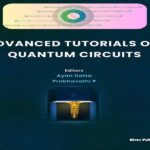


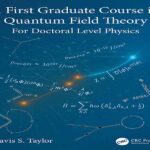


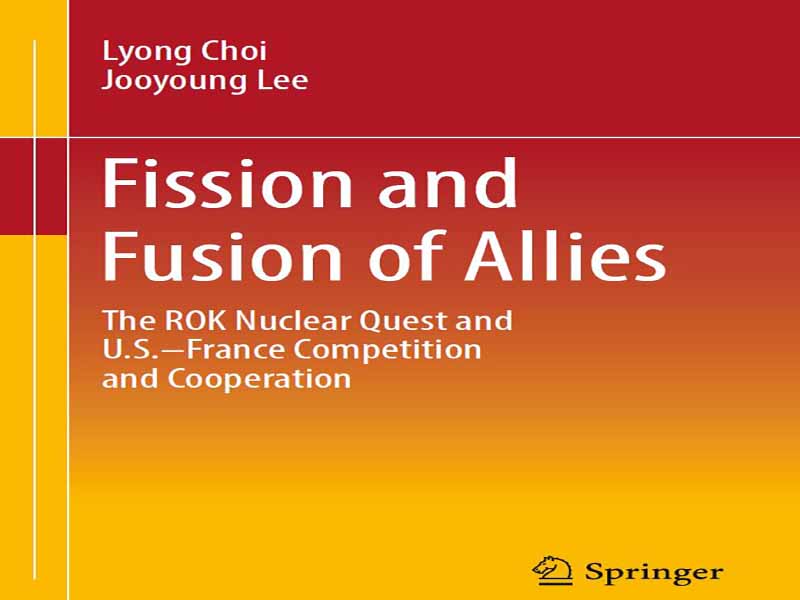


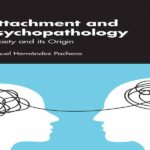
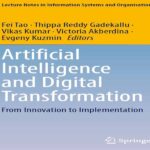
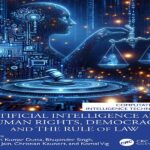




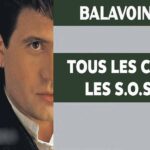












نظرات کاربران